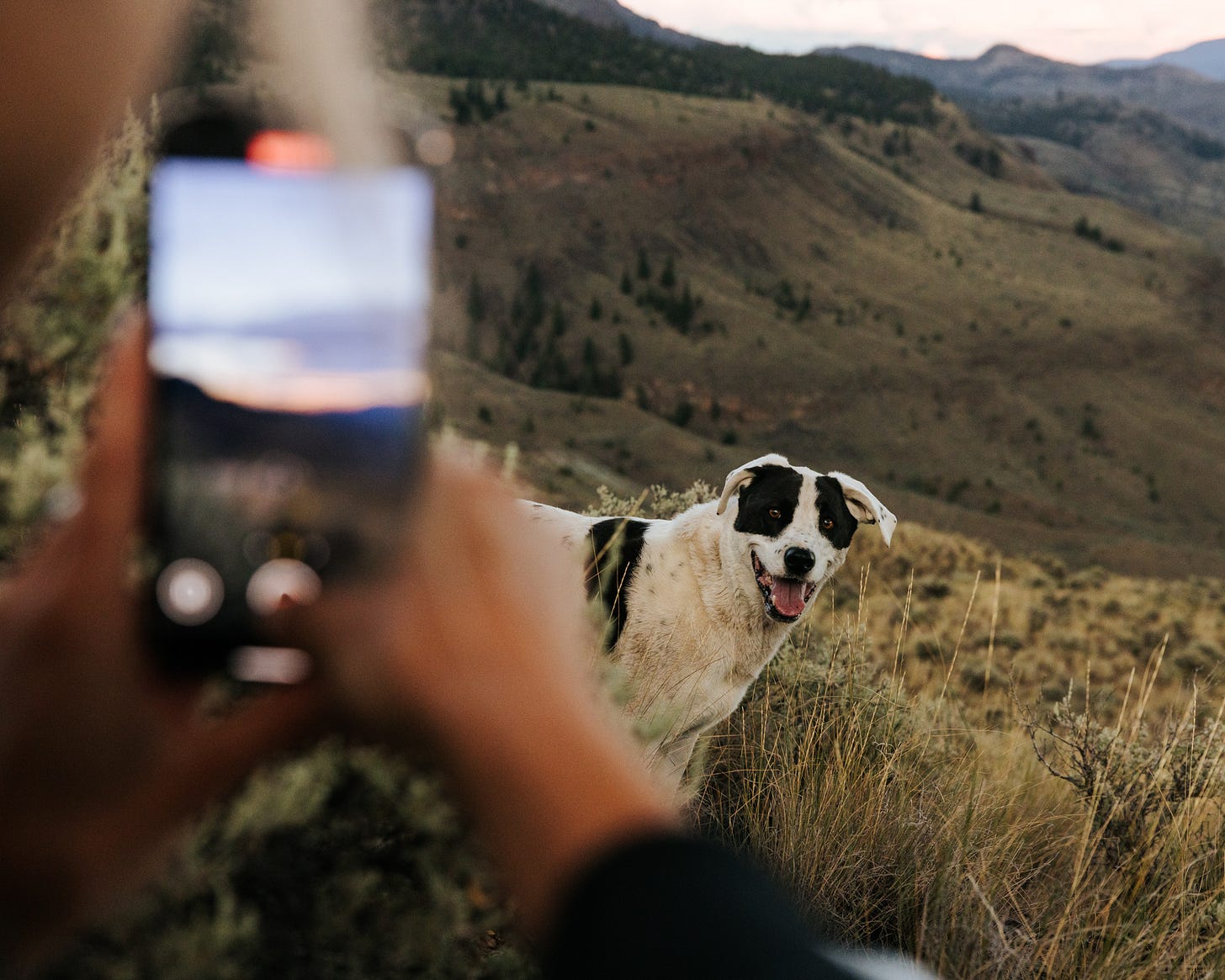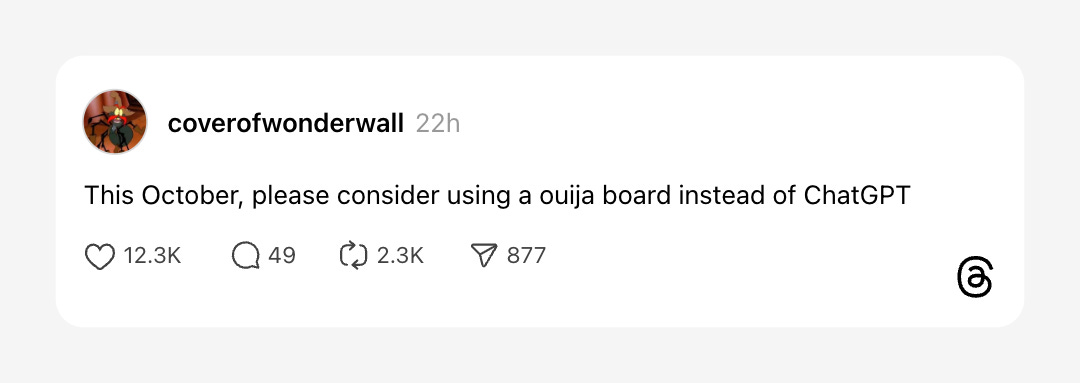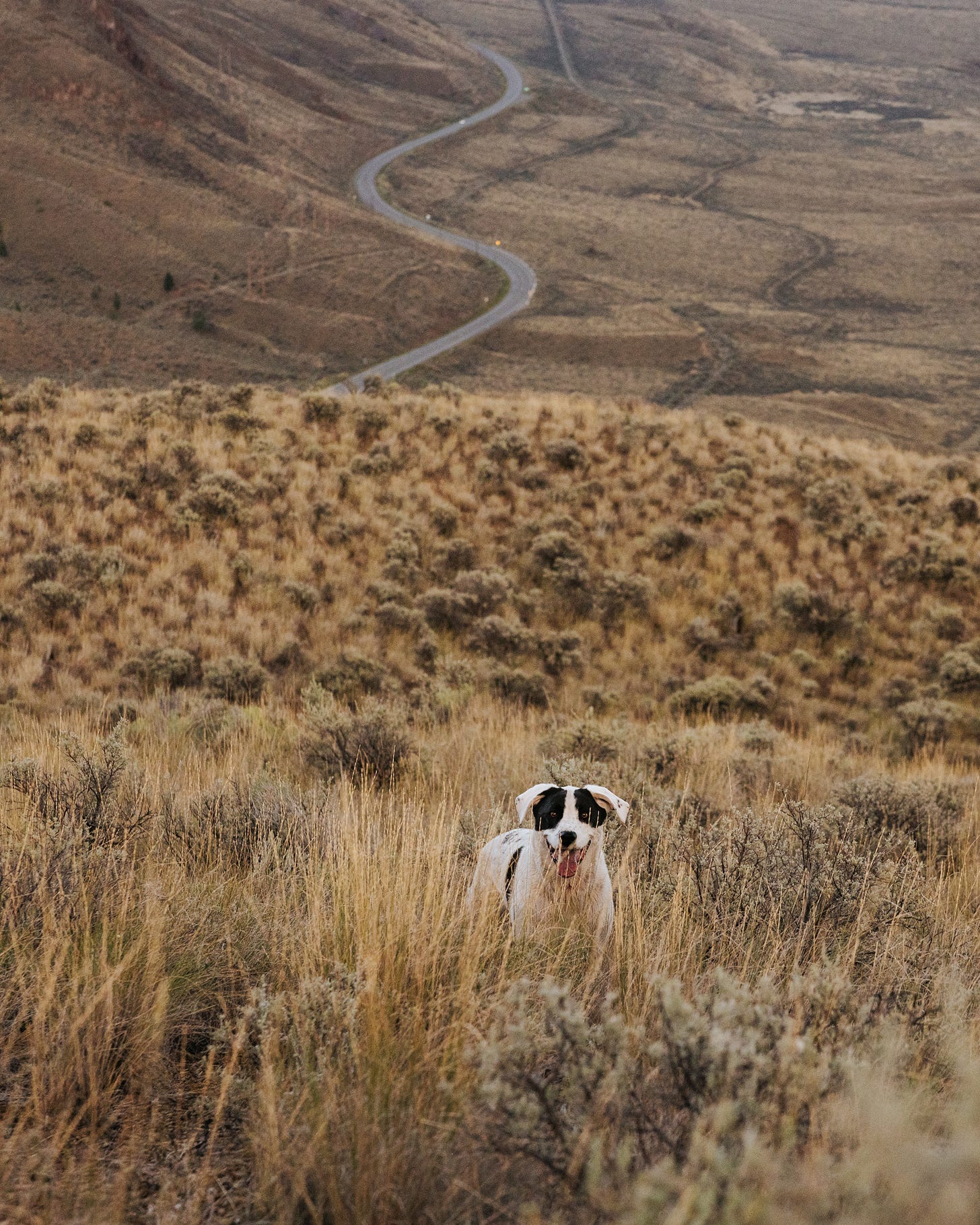A New Era of Self-Control
Our dopamine machines are working overtime. How are we fighting back?
Remember the story of the father who made his kid smoke a pack of cigarettes so he’d never want another one? I used to think that was how you’d quit anything. Drown in it until disgust sets you free. This is how I feel about AI overpopulating our social media apps. We’re already feeling social media fatigue and now this. A collective over-indulgence of increasingly heartless content.
When I was painting a mural in my hometown years ago, a friendly and frenetic regular named Richard showed up. “I’ve been trying to get them to teach self-control in schools,” he said. As the tech giants are becoming evermore entangled in our lives, Richard’s words ring even more true.
But self-control isn’t novel or shocking. This very article will likely fade quickly into your sugary feed and go unnoticed for the same reason. It isn’t a 10 second TikTok with a perfect hook, or a sensational trend. It isn’t masterfully written or revelatory and I won’t pay to promote it. So if you’re one of the few reading this slow content, I hope you’ll find some value in it.
Band-aid Tools
I was talking to a friend recently about AI. He said “we filled the internet with too much information to ever sort through, and now we’ve invented AI to sort through it for us.”
Frankly, I think this is AI’s (current) best use. Sorting through the endless information. But while we overload ourselves with information, we’ve also solidified our addiction to our screens, and in the same breath we’re trying to sell ourselves a solution. Now you can buy your attention back for a monthly fee.
Products like the phone brick, the six pound phone case, focus apps, and even medicating the ever increasing ADHD’ers. Some solutions might be helpful. They also might just be band-aids to a much simpler reality: that self-control requires more bandwidth than it used to. Self-control isn’t just a virtue anymore, it’s wilderness survival. The dopamine machine is working overtime, and so must our dedication to our wellbeing and to managing our habits.
The Kitchen of the Mind
There’s a much quieter place, though.
Call it the kitchen of the mind.
We need to spend more time here. That place we go to prepare and create and devote ourselves to the ingredients we’re lucky enough to have within our reach.
Maybe it’s more of a forest than a kitchen. But frankly, I don’t like this solution. It takes the onus from the tech billionaires who are frying our synapses for profit. They seem to think they know our future. They seem to have forgotten that they, too, breathe oxygen and rely on the natural world to survive. But until they create more responsible tools, the buck is on us to take care of ourselves.
And the answer is the same as it’s always been: listen to your dog and go outside.
Your dog. The teacher whose screen time is always zero hours.
The Solution is a Week Away
Dr. Anna Lembke said that smartphones are “modern‑day hypodermic needles” of endless dopamine hits. She’s right. Every swipe is a small injection of wanting.
Science says the “smoke a pack of cigarettes to break the habit” cure actually doesn’t work. It could just reinforce the addiction. So maybe AI will make things worse for some of us. But it isn’t black and white. I think we’ll see a split of people becoming increasingly addicted (especially as they start allowing more adult content), a mass exodus of people getting offline, and the rest, somewhere in the middle, just tired of the conversation altogether.
I’m writing this because my screen time has gone way up and I’m feeling burned out. I write this as a hypocrite who uses AI more than he should and chooses screen time over forest time far too often. But so many of my conversations with friends around social media are how to distance ourselves from it while still getting the things we love: connection, creativity, community. And I think we’re increasingly left without a choice. While we wait and see what happens in the seemingly inevitable Internet revolution, let’s just make sure we’re taking care of ourselves, our planet, and each other in the meantime.
Because habits can change. If I start today, I know that I can feel better by next week. My screen time is pretty on par with my mental health on any given day, the more hours I spend on my screen, the more awful I feel. Get that number down for 7 consecutive days, and by default I’m spending more time outside, at the gym, running the trails with the dogs, making food with friends, completing goals, or starting new projects that give me direction and even purpose.
I’ll keep creating things and sharing them on here. I don’t want to feed the rich, but I do want to make the feed richer.
Love,
Andrew








Thanks for sharing this. I heavily relate. And I see the same correlation of less screen time in my life to more confidence, creativity, in person connection, and fulfillment.
My life got so much better when I deleted the final social media app 2 yrs ago.